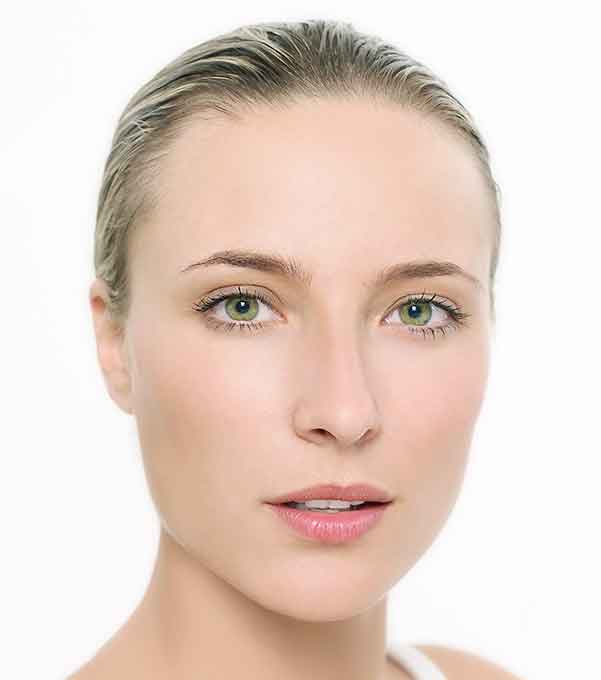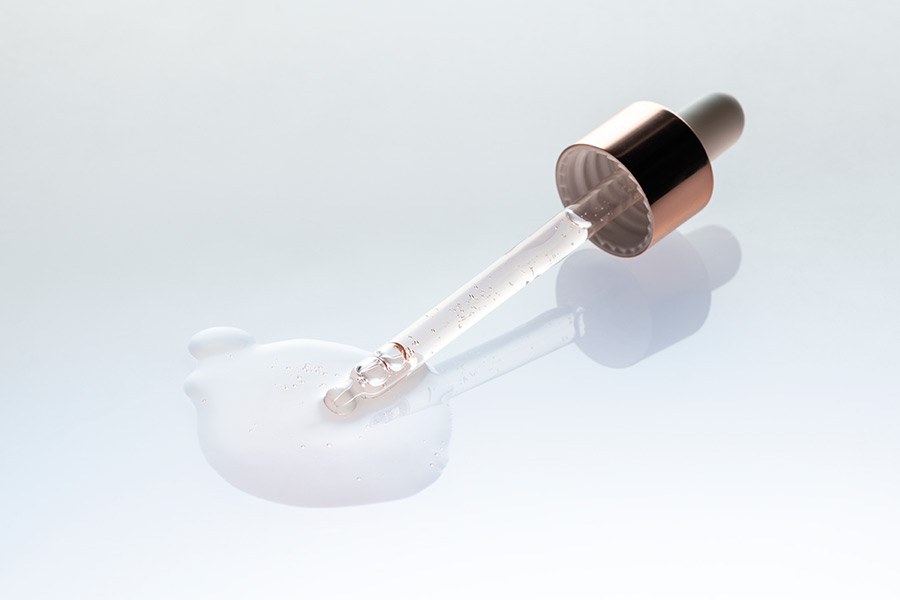What Are They and How Do They Work In Our Skins
Dr Alek Nikolic explores peptides as an ingredient in skin care products.
“Peptides have been used in skin care products for over 10 years but they have made a big comeback and resurgence in numerous skin brands has been seen in the last few years and for good reason.”- Dr Alek Nikolic
Understanding ingredients in skin care products can be intimidating but I am hoping to give a brief and easy insight with peptides so that everyone becomes an ‘expert’ and knows why they are adding it in their skin care regimes. We will look at what peptides and are, how they work, types of peptides and run through a few examples and what to look for on your ingredient list. I will also list our SkinMiles Products that contain Peptides.
What Are Peptides?
A peptide is a small fragment of protein (basically what we find in meat) and specifically a peptide consists of a few protein building blocks known as few amino acids. These amino acids are linked together by a peptide bond and hence we have peptides. OK enough with the academic stuff let’s take a closer look at amino acids and how they relate to our skin.
Amino Acids:
Amino acids are the bricks and mortar of protein and we have a total of 20 amino acids in our body. When you combine a few of these amino acids you form a peptide. In contrast a protein consists of thousands of amino acids that are bound together.
Amino Acid Fast Fact:
Amino acids are commonly used in moisturizers to give skin a greater degree of moisture as amino acids are components of our own skin’s natural moisturizing factor.
How Peptides Work:
The latest generation peptides found in skin care have a number of uses:
- Stimulating collagen, elastin, and GAG production (glycoasminoglycans which make up the fluid between collagen and elastin fibers and give skin its plumpness)
- Treat hyperpigmentation
- Reducing under-eye circles
- Calming sensitive skin
- Cellulite reduction
- Used for enhancing hair growth and even treating hair loss: Lash MD Factor and Rapid Lash
Peptides In Skin Care Fast Fact:
Peptides are expensive ingredients so when they are in our skin care products they are typically not cheap.
Types of Peptides
This is a warning as I am going to get a little technical with the types of peptides so if this is not your thing then skip this part as it makes no difference to your skin or skin care regime. The take home message is use a brand that contains peptides due to its benefits.
To start off we need to know that a peptide performs a specific targeted function in the skin and we have four types of peptides for skin:
Signal Peptides
This kind of peptide is a chemical messenger and it tells a cell to perform a specific function or signal like telling a fibroblast to make more collagen.
Examples:
- Matrixyl (Palmitoyl Pentapeptide-4): – This is the most studied and most common peptide in skin care. It stimulates collagen synthesis and has been shown to increase several types of collagen (Type 1 and 4) and GAG’s. The effects on skin are reduced wrinkle depth, wrinkle volume, and skin roughness, and increased skin thickness.
- Matrixyl 3000 (Palmitoyl Oligopeptide / Palmitoyl Tetrapeptide-7) – A dual peptide (two different peptides) that work in synergy to stimulate the wound healing process and repair damaged tissues.
- Matrixyl synthe’6 (Palmitoyl Tripeptide-38) – This peptide boosts the production of matrix proteins in the Dermal-Epidermal Junction (several types of collagen, fibronectin, laminin) and other components of the extracellular matrix, such as hyaluronic acid.
- SYN-COLL (Palmitoyl Tripeptide-5) – This peptide boosts collagen production by activating a key growth factor (TGF-Beta).
Wrinkle Relaxers or Neuropeptides
How these peptides work is by telling wrinkles to relax and they do this by limiting the effect of nerve cells that cause muscles to contract. It is a very limited effect so do not expect your face to collapse or for fascial expressions not to work. When muscles relax, the skin relaxes too, which reduces the depth of wrinkles.
Examples:
- Argireline (Acetyl Hexapeptide-3)
- SNAP-8 (Acetyl Octapeptide-3)
- SYN-AKE (dipeptide diaminobutyroyl benzylamide diacetate)
- Inyline (Acetyl Hexapeptide-30)
Enzyme Inhibitor Peptides
These peptides work by stopping or preventing the activity of enzymes such as MMP enzymes which are responsible for the break down of collagen, elastin, and other proteins and even enzymes involved in the pigmentation process.
Example:
- Trylagen (tripeptide-10, tripeptide-1) – a dual peptide that reduces MMP action and boosts Collagen Types 1, 3, and 4.
Carrier Peptides
These peptides help to carry vial ingredients and trace elements for skin health such as copper and manganese and bioactive ingredients.
Example:
- Copper peptides (e.g. GHK tripeptide, Copper PCA) – increase the delivery of copper into cells (copper is an essential cofactor in collagen synthesis).
Fast Fact:
“There are many other peptides on the market now and new ones continue to be discovered every year.” – Dr Alek Nikolic
How Do You Know A Peptide Has Been Used
In most cases it will appear very simply in the ingredient list as ‘peptide’ but occasionally it will be listed by its trade name like Matrixyl or the other peptide names listed in the above article.
Key Take Home Message:
“Peptides are important building blocks that tell the skin to make more collagen, stop producing too much pigmentation; it stops the breakdown of collagen and even brings nutrients and trace elements to improve skin health.” – Dr Alek Nikolic
I hope you found the above article interesting and helpful in deciding to add peptides to your skin care regime.
Please feel free to send e comments or any questions you have on your skin or skin care regime.
Kind regards
Dr Alek Nikolic’s Product Recommendations:
SKINCEUTICALS A.G.E. EYE COMPLEX
DERMAQUEST PEPTIDE EYE FIRMING SERUM
DERMAQUEST NOURISHING PEPTIDE CREAM
DERMAQUEST NOURISHING PEPTIDE RICH
DERMAQUEST PEPTIDE LINE CORRECTOR
NEOSTRATA SKIN ACTIVE FIRMING COLLAGEN BOOSTER
EXUVIANCE BRIGHTENING BIONIC EYE CREME PLUS
EXUVIANCE AGE REVERSE DAY REPAIR SPF30
EXUVIANCE TRIPLE BOOST COLLAGEN SERUM
References:
- Cosmeceuticals: peptides, proteins, and growth factors. Husein El Hadmed H, Castillo RF. J Cosmet Dermatol. 2016 May 3. doi: 10.1111/jocd.12229. [Epub ahead of print] Review.
- Biopolymeric agents for skinwrinkle treatment. Lourith N, Kanlayavattanakul M. J Cosmet Laser Ther. 2016 Apr 22:1-10. [Epub ahead of print] PMID: 26963365
- Cosmeceutical peptides. Lupo MP, Cole AL. Dermatol Ther. 2007 Sep-Oct;20(5):343-9. Review. PMID: 18045359
- Efficacy and safety of innovative cosmeceuticals. Gao XH, Zhang L, Wei H, Chen HD. Clin Dermatol. 2008 Jul-Aug;26(4):367-74. doi: 10.1016/j.clindermatol.2008.01.013. Review.
- Next generation cosmeceuticals: the latest in peptides, growth factors, cytokines, and stem cells. Malerich S, Berson D. Dermatol Clin. 2014 Jan;32(1):13-21. doi: 10.1016/j.det.2013.09.003. Review.
- This article was sourced from Just About Skin written by Rita Lee. She has an impressive blog and gives accurate information on skin and skin care products and regimes. I highly recommend her blog for in depth education on skin care ingredients.





Interesting read, thanks for the info